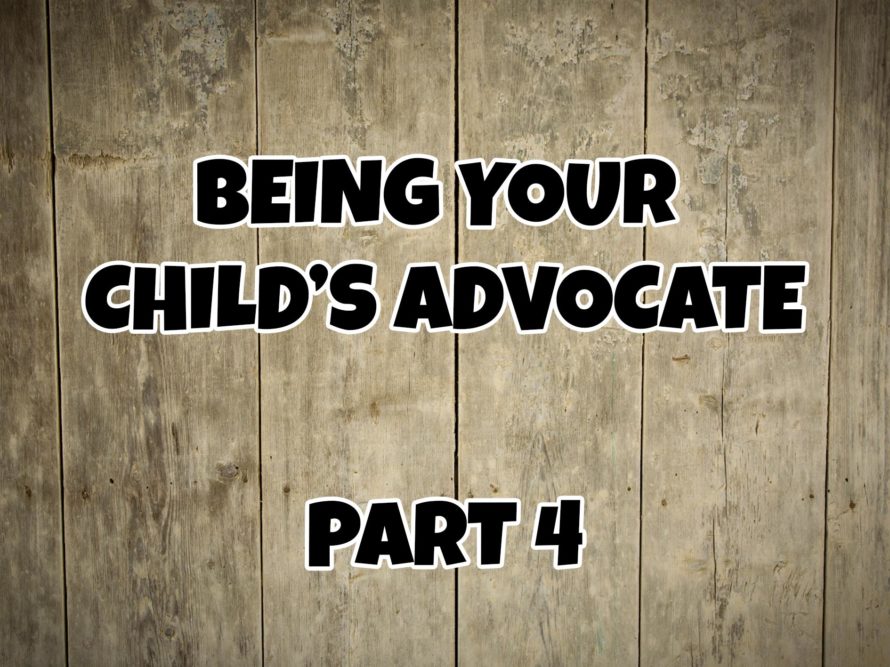Often, I speak with parents who feel like they have no choices about their child’s education or that the school is doing something to their child instead of engaging in a partnership with the family to do something for the child. This is especially true when the child requires special education supports. But parents have far more power than they often realize; sadly, sometimes they are led to believe otherwise. (I should note that what follows is based on my experience in publicly funded schools in Ontario. If you are from another jurisdiction, please check with your local education authority.)
Following are seven things to keep in mind about your rights and the school’s responsibilities. They address issues about placements, accommodations, IEPs, and regular reviews of how your child is doing with the supports provided.
- Every child has a right to be educated in their local school in a regular class. In some cases, the school might suggest that this is not the best environment for meeting your child’s particular needs and propose an alternate placement. You can accept or decline that placement as you see appropriate. You are the decision maker. Your local school cannot deny you a regular class placement (except, perhaps, in cases of expulsion), but they may not be able to offer all of the services available in a specialized program.
- Placement decisions are not permanent. If your child is formally identified as needing special education support and is not benefiting from a placement—either in a mainstream class or in a specialized program—you can request an Identification, Placement, and Review Committee (IPRC) meeting to review the placement and re-evaluate. That might sound intimidating, but schools conduct IPRCs all the time; it is a normal part of their practice. Some parents might worry that accepting a placement in a special education program puts them at risk of being stuck. I advise parents to get the information, visit the program in advance, and be aware that they can request to have their child moved back to their local school even mid-year if they are unsatisfied with the placement. The same is true in reverse: If you have opted for a mainstream placement and regret your decision, approach your school about presenting your child for a specialized program. There may or may not be placements available mid-year, but it’s certainly worth a conversation.
- Every child is entitled to accommodations. Accommodations are not changes to the curriculum; they are just strategies about how the educator instructs or assesses your child, or how the environment is set up to meet their needs. If your child benefits from speech-to-text technology, needs noise-cancelling headphones, or requires frequent breaks or extended time limits, these can all be adopted informally just by talking with the teacher. Most educators understand that they need to adjust their teaching and assessment styles to accommodate the diverse learners in the class, and they are happy to do so, even without an Individual Education Plan (IEP).
- An IEP is a legal document. Educators are legally obligated to do the things that are written in an IEP. It is for this reason that I advise them to think carefully about what is possible before writing it down. It is also the reason I advise parents that if your child needs very specific strategies to be successful, it is best to have these documented in an IEP. As I said above, most teachers will make the accommodations anyway, but an IEP is insurance against a teacher who is less committed or knowledgeable, one who might be “old school” or a brand-new teacher who is stepping in to cover for an unexpected medical leave.
If your child requires changes to the curriculum, that must be documented in an IEP. For a more in-depth understanding of the content of IEPs, please see here. - IEPs are working documents and easily changed. If a goal on your child’s IEP is too easy or too difficult, if strategies are not working as expected, or if you don’t agree with something that is written, all that is needed to change an IEP is a meeting (or even a conversation) between the educator and the parent. IEPs are plans, the educator’s best guess about how things will unfold. But as we all know, plans sometimes need to be changed, so don’t be afraid to ask for a meeting to discuss it. The educator will document the meeting on the consultation page, and depending on the items being changed, it may need to be reviewed by the principal, then voila, you have amended the IEP.
- Parents must be consulted in the development of an IEP. Many schools will send out a questionnaire at the beginning of the year to ask about your child, their strengths and needs, your observations, etc. This is done in the interest of expediency. I often had 40+ IEPs to write, and they must go home on the 30th day of school. With the timelines and details of school start-up, it would be impossible to meet individually with each family. This is not to say that under some circumstances, a face-to-face meeting would not be very valuable. If you feel that you’d like a personal meeting with the educator(s), send in a note or call them, and one can be arranged.
- Every child receiving special education support must be reviewed every year. This is called “annual review” and happens in the spring. It is a time for the school staff to reflect on how things are going with the support, whether it is still required, and if there are additional recommendations. If your child is formally identified and moving schools or placements (even going from elementary school to middle school), this meeting (an IPRC) is conducted formally with a full committee, and parents are invited to attend. If your child’s placement is staying the same, many boards have the practice of sending a letter home confirming this and asking parents to waive the requirement for a meeting. Almost all parents sign this form, but you don’t have to. You can request a meeting at this time. The school may schedule an informal meeting to make sure they understand your questions and concerns and determine if a full IPRC is required, or they may convene the full committee. This does not need to be saved for situations of dissatisfaction, either; if you have felt that a year has gone particularly well, you can express that you think certain factors are required to keep the positive momentum going into the following year. The school may or may not be able to accommodate your requests (especially for specific professionals to be working with your child or specific levels of support being offered), but it doesn’t hurt to make your wishes known.
Don’t let the educational jargon and the teacher ID badge make you feel less powerful than you are in the education of your children. Kids do best when parents and schools work together towards a common goal.

